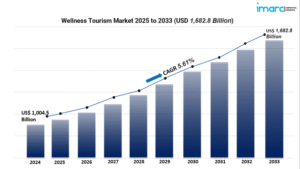
In today’s digital-first world, real estate tokenization is shaking up traditional property investment. By leveraging blockchain technology, tokenization is making real estate more liquid, transparent, and accessible to a global pool of investors. However, the key to unlocking these benefits lies in choosing the right real estate tokenization platform.
With dozens of tokenization providers promising secure, high-return opportunities, making the right decision can be overwhelming. That’s why we’ve put together this detailed guide to help you understand what to look for in a real estate tokenization platform that aligns with your goals, whether you’re an investor or a developer.
Let’s dive in!
What is a Real Estate Tokenization Platform?
A real estate tokenization platform is a blockchain-based digital solution that allows physical property assets—such as commercial buildings, residential properties, or REITs—to be divided into digital tokens. These tokens represent fractional ownership in the underlying asset and can be bought, sold, or traded like other digital securities.
Platforms handle the complex processes behind token creation, investor onboarding, compliance management, and secondary market integration—making it easier to launch or invest in tokenized real estate assets.
Why Choosing the Right Platform Matters
The tokenization platform you choose serves as the foundation of your investment or development strategy. A reliable platform ensures regulatory compliance, seamless user experience, and ultimately, secure and profitable investments. A poor choice could mean legal risks, lack of liquidity, or even platform failure.
So, what makes one platform better than another? Here are the key factors to consider.
1. Regulatory Compliance and Legal Support
Real estate tokenization is subject to securities laws and regional regulations. The platform should offer end-to-end legal compliance, including:
- KYC (Know Your Customer) and AML (Anti-Money Laundering) checks
- SEC or jurisdictional compliance (e.g., Regulation D, S, A+ in the U.S.)
- Custodial and licensing services
- Legal frameworks for different asset classes
If a platform fails to meet legal standards, you risk fines, lawsuits, and loss of investor confidence. Choose a platform that has robust legal infrastructure in place and access to experienced legal advisors.
2. Blockchain Technology and Token Standards
Make sure the platform uses secure and scalable blockchain technology—such as Ethereum, Polygon, or Hyperledger—and supports widely accepted token standards (e.g., ERC-1400, ERC-20). The choice of blockchain impacts:
- Interoperability with wallets and exchanges
- Gas fees
- Transaction speeds
- Smart contract reliability
A platform built on a high-performing chain ensures smooth transactions, high liquidity, and enhanced investor trust.
3. User Interface and Investor Experience
An intuitive, easy-to-navigate platform is critical for attracting and retaining users. Investors should be able to:
- Sign up easily and pass KYC/AML verifications
- Browse available assets
- Purchase or trade tokens seamlessly
- Access dashboards for tracking ROI, dividends, and token performance
If a platform is clunky or non-responsive, users will abandon it. Make sure the user interface is mobile-friendly, multilingual, and responsive.
4. Secondary Market Access
One of the biggest promises of real estate tokenization is liquidity. A solid platform must be integrated with secondary exchanges or offer an internal marketplace for token trading.
Ask the following questions:
- Does the platform support peer-to-peer trading?
- Is there integration with licensed exchanges?
- Can investors exit or trade tokens at any time?
Without liquidity options, the benefits of tokenization become limited.
5. Smart Contract Automation
The power of tokenization lies in automating traditional processes like dividend payouts, ownership transfers, and compliance. A good platform uses smart contracts to:
- Enforce investor restrictions
- Automate distributions (like rental income)
- Manage shareholder rights and voting
- Trigger compliance events automatically
Verify if the platform’s smart contracts are audited by third-party security firms for safety and transparency.
6. White-Labeling & Customization
For property developers and asset managers, the ability to white-label the platform or customize features is crucial. It allows you to brand the platform, tailor investor onboarding, or even create bespoke investment dashboards.
Customization features may include:
- UI branding
- Custom investor portals
- Multi-asset support
- Payment integrations (crypto/fiat)
White-label platforms are ideal for those launching their own real estate tokenization services without building everything from scratch.
7. Customer Support and Onboarding Services
A great platform doesn’t leave you hanging after setup. Look for one that offers premium customer support, educational resources, and onboarding assistance. This can include:
- Live chat or dedicated support manager
- Detailed FAQs and tutorials
- Developer support
- Investor education content
The more user-friendly the experience, the higher the investor retention and project success.
8. Proven Track Record and Reviews
Before committing, do your homework. Check for:
- Case studies or whitepapers
- Reviews from existing users or clients
- Media mentions or awards
- Leadership team transparency
If a platform has successfully tokenized projects worth millions and has credible partners and clients, it’s a good sign.
Top Real Estate Tokenization Platforms (2025 Picks)
Based on the above factors, here are a few of the best platforms:
- RealT – Specializes in fractional property ownership in U.S. real estate.
- SolidBlock – Known for high-end commercial tokenization and a strong compliance framework.
- Propy – Focuses on smart contracts for property sales and automated document management.
- Blocksquare – Offers white-label tokenization infrastructure for developers and companies.
- Smartlands – Integrates real estate tokenization with security tokens and investor networks.
Final Thoughts
Choosing the right real estate tokenization platform is one of the most crucial decisions for any investor or developer entering this emerging space. The right platform ensures compliance, boosts investor confidence, enhances liquidity, and ultimately contributes to the success of your real estate venture.
Remember to prioritize:
- Legal and regulatory compliance
- Smart contract functionality
- UX/UI and investor dashboard tools
- Secondary market access
- Strong platform reputation
Tokenized real estate is shaping the future of property investment—don’t miss your chance to be part of the revolution. Whether you’re looking for secure, high-yield investment opportunities or building your own tokenization project, picking the right platform is the first step toward long-term success.
If you’d like help creating a list of platforms, reviewing token standards, or writing platform-specific comparisons for SEO—just let me know!





